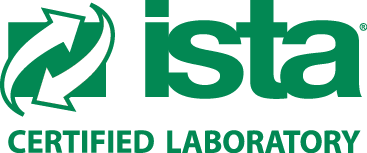ICH Stability Guidelines
The ICH (International Conference on Harmonization of Technical Requirements for Registration of Pharmaceuticals for Human Use) is a nonprofit organization that encourages collaboration and discussion between regulatory authorities and the pharmaceutical industry. The goal of the organization is to establish safe and effective pharmaceutical guidelines for the U.S., EU, and Japan. Pharmaceutical manufacturers must satisfy the ICH guidelines that have been accepted as law in order to satisfy international safety standards.
What Is ICH Stability Testing?
ICH stability testing is based on their document “Q1A (R2) Stability Testing of New Drug Substances and Products”. This document outlines the ICH guidelines for stability testing for pharmaceutical substances in relation to how they’re impacted by a variety of environmental factors. The purpose of ICH stability testing is to gauge how particular substances and drug products are affected by factors such as temperature, humidity, and light.
In line with ICH stability guidelines, there exist three basic stability tests:
- Physical and chemical integrity: This stability test focuses on the physical properties of a substance, which includes odor, texture, color, pH value, and more.
- Microbiological stability: This testing hones in on microorganisms and examines levels of contamination with respect to bacteria and mold.
- Packaging stability: This ICH stability test evaluates the impact a packaging system has on the product contained within it.
Importance Of ICH Stability Testing & Guidelines
As stated above, the purpose of ICH stability testing is to measure how specific pharmaceutical drugs and substances respond to factors such as temperature, humidity, and light. By adhering to ICH guidelines for stability testing, pharmaceutical manufacturers can accurately determine a drug’s shelf life and determine appropriate storage conditions.
One of the other major benefits of ICH stability testing is that it plays a role in helping manufacturers and regulators determine a drug’s effectiveness. Determining how environmental conditions impact the effectiveness or potency of a drug can boost consumer safety.
Frequently Asked Questions
Get answers to our most frequently asked questions.
What types of products undergo ICH stability testing?
Pharmaceutical drugs and substances undergo ICH stability testing. ICH guidelines for stability testing are specifically concerned with the interactions between pharmaceutical drugs and environmental factors. Temperature, humidity, and light can all potentially impact the effectiveness, potency, and safety of a drug. Therefore, ICH stability testing sets out to determine how pharmaceutical substances react to these environmental factors, with the goal of calculating a shelf life for the drug and determining ideal storage conditions.
How long are test subjects stored during ICH stability testing?
There are three basic environmental conditions used in ICH stability testing. These environmental conditions play a key role in determining the amount of time a test subject is stored for. Below are the environmental conditions used in ICH stability testing:
- +25⁰C, 60%RH (Long-term)
- +30⁰C, 65%RH (Long-term or intermediate)
- +40⁰C, 75%RH (Accelerated)
- Customer specific conditions
The minimum recommended time is based on the storage condition. For example, the shortest duration is 6 months for an accelerated study (+40⁰C, 75%RH), and 12 months for a long-term study (+25⁰C, 60%RH).
What’s the difference between long-term and accelerated stability testing?
When it comes to ICH stability testing, long-term and accelerated stability testing each have unique conditions and storage times. We’ve outlined the conditions and storage duration for each type of ICH stability testing below:
- Long-term
- Conditions: +25⁰C, 60%RH
- Storage duration: 12 months
- Accelerated
- Conditions: +40⁰C, 75%RH
- Storage duration: 6 months
As the name implies, accelerated stability testing can produce results in a shorter period of time by simulating long-term conditions.
What’s the difference between ICH stability testing and accelerated aging?
ICH stability testing, designed by the pharmaceutical industry, is used primarily to determine how the quality of a drug product changes when exposed to stressors found in storage environments, such as temperature, humidity, and light. Product characteristics for stability evaluation may include physical, chemical, biological, and microbiological attributes.
Testing for the effects of temperature on a single batch might include the impact of changes in 10°C increments, for example. Samples may be withdrawn every six months for analysis.
In contrast, accelerated aging studies are used by the medical device industry and others to rapidly determine the effects of time on a product and its package system by exposing samples to elevated temperatures. For a medical device, real-time and accelerated aging studies are performed in parallel to completion and the claimed shelf life. A typical accelerated aging temperature is +50°C.
Which tests may be combined with stability testing?
As you follow the ICH guidelines for stability testing, you may want to combine the basic tests with other related tests to achieve a more comprehensive perspective. At Westpak, we can conduct accelerated aging tests, real-time aging tests, and a variety of other test standards in accordance with industry best practices. As a pharmaceutical manufacturer, this allows you to gain valuable insights into your products while maximizing safety and efficiency both for the consumer and your company.
Westpak has the stability chambers, facilities, experience, and package test capability that companies need to achieve compliance for their pharmaceutical products and packaging. In addition, custom storage conditions are available to satisfy unique, proprietary requirements. Our equipment undergoes validation protocols in addition to ongoing maintenance, calibration and monitoring. Contact us today to learn more about how we can help you stay in compliance with ICH stability guidelines and other industry standards.
Accreditations:

Testing at Westpak has been accredited by A2LA to comply with ISO 17025.

Westpak testing labs are ISTA certified to perform a variety of tests.
